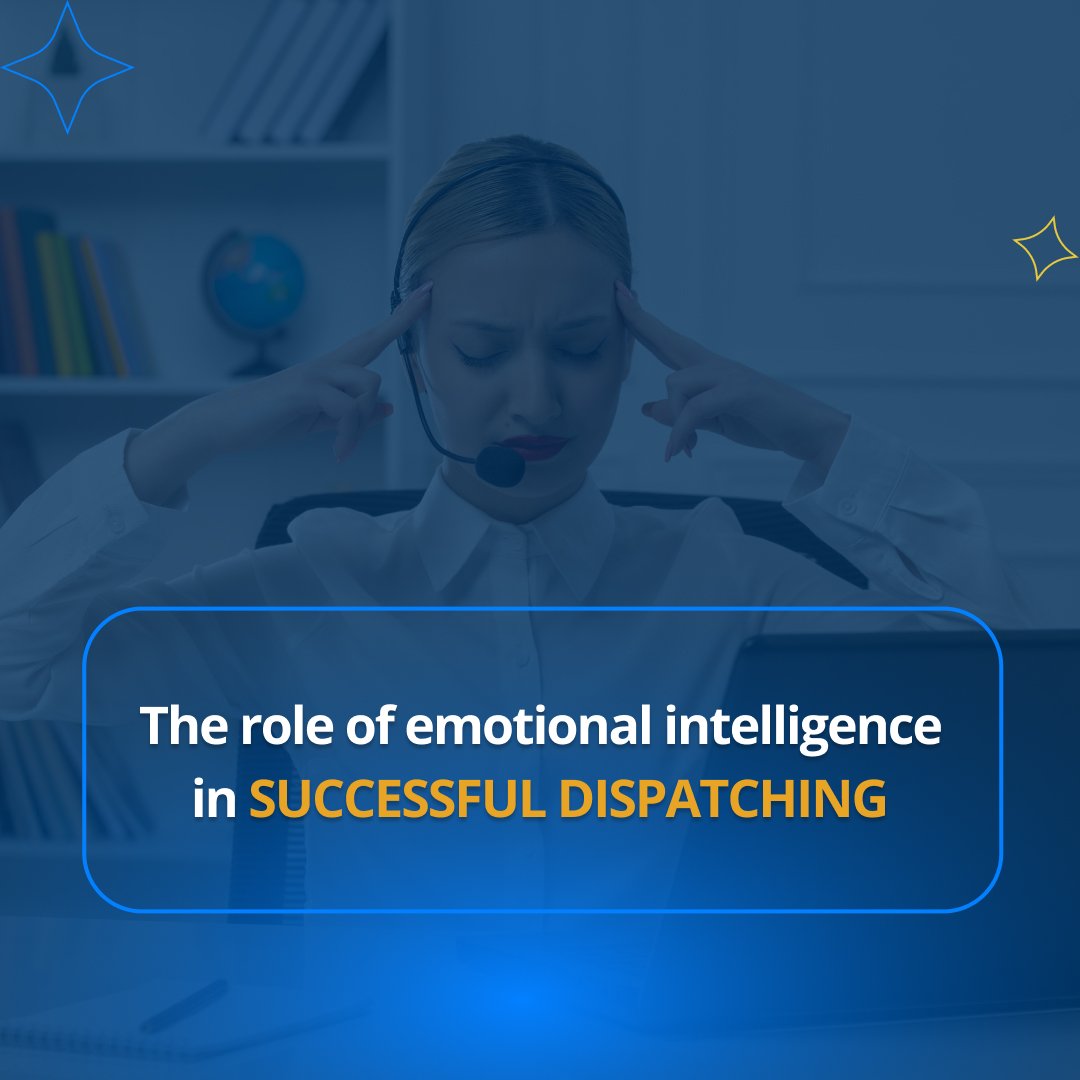
The role of emotional intelligence in successful dispatching
Emotional intelligence (EI) is a crucial factor in determining success in various areas of life, including dispatching activities. Dispatchers play an important role in coordinating and managing various processes, including aviation, transportation, fire services, and other fields where effective communication and decision-making in stressful situations are required. In this text, we will explore how emotional intelligence influences the success of dispatching activities.
Firstly, emotional intelligence helps dispatchers effectively manage stress and emotional challenges they encounter in their work. Dispatching activities are often associated with high levels of responsibility, urgent situations, and the need for quick decision-making. The ability to control one’s emotions enables dispatchers to remain calm and focused, facilitating reasoned and thoughtful decision-making in complex situations.
Secondly, emotional intelligence contributes to the development of empathy and social skills, which are key aspects of interacting with others. Dispatchers often have to deal with clients who may be in a state of stress or anxiety. Understanding the client’s emotional state and being able to provide emotional support helps establish trusting relationships and facilitates more effective communication.
Moreover, emotional intelligence helps dispatchers better understand and manage their emotional reactions in conflict situations. Conflicts may arise due to various factors, such as client dissatisfaction, mismatched expectations, or difficulties in interacting with colleagues. The ability to effectively manage emotions allows dispatchers to maintain professionalism, resolve conflicts, and find constructive solutions.
Lastly, emotional intelligence fosters the development of teamwork and leadership skills. In dispatching activities, it is important to collaborate effectively with other team members, coordinate actions, and make decisions collectively. Dispatchers with developed emotional intelligence are better equipped to handle interpersonal conflicts, engage and motivate their colleagues, and create a positive work environment.
In conclusion, emotional intelligence plays a significant role in successful dispatching activities. It helps dispatchers manage emotions, effectively interact with others, make informed decisions in stressful situations, and develop leadership skills. The development of emotional intelligence should be a priority for dispatchers and organizations operating in this field to ensure the smooth and successful functioning of dispatching services.
Our latest posts

Start your own truck dispatch business with expert tips and tricks| Truck Dispatcher Training
In our new video, we dive into the exciting world of trucking logistics in the USA. Our host sits do...

Effective methods of self-development in your career
Self-development is a vital aspect of one’s career growth and overall well-being. In todayR...

Modern training methods for freight dispatchers
In the fast-paced world of modern freight transportation, dispatchers play a critical role in ensuri...